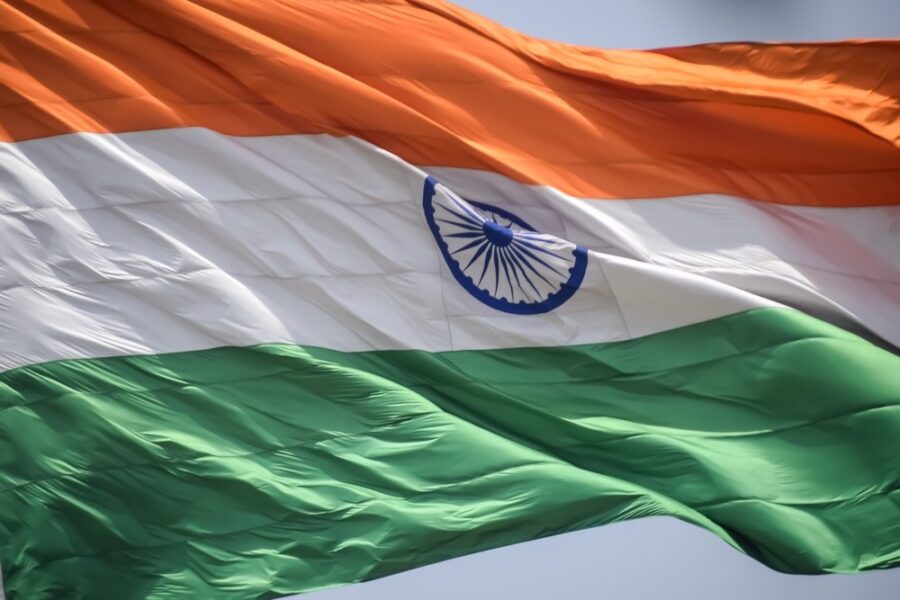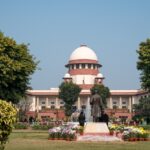Indian Supreme Court seeks government input on plea to ban online gambling

India’s Supreme Court has asked the central government to respond to a public interest litigation that seeks a nationwide ban on online gambling platforms operating under the guise of social or e-sports games.
Justices J.B. Pardiwala and K.V. Viswanathan directed the petitioner’s counsel to share a copy of the plea with government representatives on Wednesday, asking for them to interpret the provisions of the Promotion and Regulation of Online Gaming Act, 2025.
The petition was filed by the Centre for Accountability and Systemic Change on October 13, urging the government to prohibit online gambling sites and to block monetary transactions through platforms, including the Reserve Bank of India, for any unregistered gaming applications.
It calls on various government ministries, including Electronics and Information Technology, Information and Broadcasting, and the Ministry of Youth Affairs and Sports, to ensure a coordinated evaluation of the new gambling act.
The Centre for Accountability and Systemic Change also sought tax recovery and investigations by Interpol, the Central Bureau of Investigation, and the Enforcement Directorate against offshore companies owing over INR20 million in unpaid taxes.
The litigation names six respondents: four government ministries and the two major app-store operators, Apple and Google India.
Earlier this month, the Supreme Court of India agreed to hear the public interest litigation.
Abi Bray brings strong researching skills to the forefront of all of her writing, whether it’s the newest slots, industry trends or the ever changing legislation across the U.S, Asia and Australia, she maintains a keen eye for detail and a passion for reporting.
Verticals:
Sectors:
Topics:
Dig Deeper
The Backstory
Why the case landed in the Supreme Court
India’s highest court is testing the limits of a fast-growing online gaming economy and the government’s new regulatory tools. The Centre for Accountability and Systemic Change, a governance group, filed a public interest litigation on Oct. 13 seeking a nationwide crackdown on gambling platforms that, it argues, mask themselves as social or e-sports games. The petition asks for coordinated action across ministries and payments regulators and names Apple and Google as distribution gatekeepers. A separate filing by the same group had already prompted the court to schedule a hearing on whether operators are exploiting ambiguity in skill-based gaming rules and the recently enacted Promotion and Regulation of Online Gaming Act, 2025. That earlier step signaled the court’s willingness to scrutinize how “social” labels and app-store listings may obscure real-money gambling.
The court’s latest move to draw in the Union government underscores the stakes. The petitioner wants ministries spanning electronics, information and broadcasting, and youth affairs to align on definitions, licensing and enforcement. It also presses the Reserve Bank of India and the National Payments Corporation of India to cut off payment rails, including UPI, for unregistered gaming apps. The request extends to investigations of offshore companies for unpaid taxes and data protection concerns. In parallel, the debate is widening beyond statutory interpretation to public health and consumer harms, with petitioners arguing the problem has become a national crisis affecting households across income tiers.
This legal posture reflects a broader inflection point: state prohibitions and carve-outs for “skill” games have collided with a pan-India market shaped by smartphones, instant payments and celebrity marketing. The court is now positioned to clarify whether the new central framework can rein in practices that state police actions and tax demands have not curbed.
A separate plea puts sports betting in the crosshairs
The Supreme Court has already heard a distinct petition targeting the fast-expanding universe of sports betting apps, adding pressure on regulators and platforms. In that case, a bench took up claims from Dr. Kilari Anand Paul that online sportsbooks were fueling addiction and suicides, especially among younger users, and that celebrity endorsements amplified the harm. The court notified the central government and forwarded the plea to India’s top law officers for review, highlighting public concern even as justices noted the limits of what laws alone can deter. The filing cited hundreds of suicides in Telangana and asserted that hundreds of millions of Indians are exposed to betting products that lack the warnings required for tobacco and other harmful goods.
That petition complements the governance group’s case by narrowing the lens to sports wagering apps and promotional practices. Together, they frame the court’s task: distinguish protected skill-based play from chance-based betting, assess whether current disclosures are adequate and determine how much responsibility sits with platforms and endorsers. The overlap also increases pressure on ministries to defend the contours of the new online gaming act and explain how it will separate registered games from gambling thinly veiled as e-sports or social play.
The enforcement maze: payments, platforms and ministries
The petition that sparked this week’s step by the court is notable for how it targets plumbing, not just players. It asks the RBI and NPCI to block transactions to operators that lack authorization, a move that would mirror playbooks used against unlicensed lenders and crypto scams. It also pushes for probes into offshore networks and recovery of unpaid taxes above 20 million rupees, arguing that routing through foreign entities erodes the domestic tax base and complicates consumer redress. App-store operators Apple and Google are named to force scrutiny of how games are categorized, what disclosures appear on listings and how age gates function.
Earlier, the court agreed to hear the group’s public interest case focused on social games, which urged a coordinated evaluation of the online gaming law by the ministries of electronics and IT, information and broadcasting, and youth affairs and sports. That case also pressed payments authorities to halt processing for unauthorized platforms and called out influencers and athletes for promotions that, the group argues, help drive addiction, cyber fraud and mental health disorders. The twin filings effectively ask the judiciary to nudge the executive toward a whole-of-government approach, bridging consumer protection, taxation, financial surveillance and content regulation.
The government will have to reconcile several sensitivities. India’s startup ecosystem includes fantasy sports and real-money skill games that have drawn investment, created jobs and contributed to tax revenue. Yet the same frictions that brought these cases—opaque game mechanics, aggressive marketing and frictionless payments—have made it difficult to keep chance-based gambling out of the mainstream app economy. Any directive touching payments and app stores would reset market dynamics overnight.
Regional moves show a tightening trend
India is not alone in trying to draw clearer lines around online gambling. In Chile, the Third Constitutional Chamber of the Supreme Court ruled that all online gambling is illegal unless expressly authorized, siding with a lottery operator seeking to force internet providers to block access to unlicensed sites. The decision narrowed the legal field to state-authorized lotteries, racetracks and casinos and comes as lawmakers weigh a regulatory bill for the sector. Regulators there estimate more than 900 platforms operate illegally, generating significant untaxed revenue nationwide. The ruling signals that courts can act ahead of or alongside legislative efforts when market growth outpaces enforcement.
Bangladesh has moved against the advertising that fuels demand. Its High Court ordered the government to ban online gambling ads and formed a seven-member committee of top officials and police to deliver a report within 90 days. The order questioned why authorities had not already halted promotions given that all gambling is prohibited, putting officials on notice that inaction may be deemed illegal. The focus on marketing mirrors concerns in India over endorsements by influencers and athletes, a channel that introduces gambling products to mass audiences on social media.
The Philippines took a narrower path but with a clear signal on public integrity. The Department of the Interior and Local Government barred government employees from any form of online gambling, extending an existing casino ban to digital platforms and warning of administrative or criminal penalties. The order framed gambling as a threat to institutional credibility and public service. President Ferdinand Marcos Jr. pledged a national conference on online gambling amid rising scrutiny from lawmakers and clergy. The move highlights an approach that uses workplace rules to limit exposure while broader regulation evolves.
What the court’s next steps could decide
The Supreme Court’s request for the Union government’s views is a pivotal test of how India will police the line between skill and chance online. A clear reading of the online gaming act and directives to payments and platform operators could constrict the reach of unregistered gambling apps quickly. A narrower response that defers to states might leave the current patchwork in place, sustaining enforcement gaps and legal uncertainty for companies that blend skill mechanics with real-money play.
Either outcome will carry consequences for investors, app-store policies, payments firms and marketers. If payments are switched off for unregistered operators, user migration to authorized games could be swift. If app stores are pushed to tighten classification and disclosures, celebrity endorsements may face stricter review. And if the court spotlights tax recovery and offshore routing, enforcement agencies will have a clearer mandate to act. The court’s handling of the parallel sports betting plea will add further contours, especially on advertising and consumer warnings. The coming submissions from ministries will show whether the government sees regulation as a scalpel or a sledgehammer in a market where lines have blurred by design.








